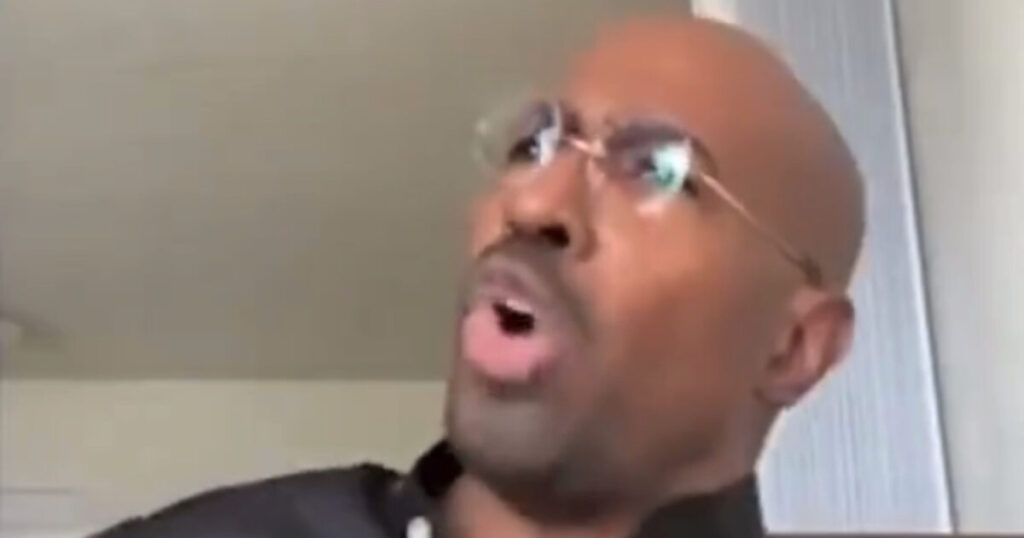In a recent podcast, CNN commentator and former Obama advisor Van Jones made headlines for declaring that Donald Trump is “smarter” than all of his critics, including himself. This statement was made during an interview with political commentator Chris Cillizza, where Jones emphasized that Trump has outmaneuvered the Democratic Party and the mainstream media to such an extent that they now appear foolish. Jones’s comments came in the context of Trump’s anticipated sweeping victory in the upcoming 2024 election, where he is expected to secure all swing states, 312 electoral votes, the national popular vote, and both chambers of Congress. Cillizza echoed Jones’s sentiments, expressing disbelief at how Trump managed to build such a successful political movement while simultaneously transforming the media narrative.
Jones articulated how Trump has been able to redefine the political landscape by tapping into a massive media ecosystem that rivals the mainstream. He argued that Trump’s strategic acumen is evident in his political gains, highlighting that this has led to a significant shift in the perception of what constitutes mainstream versus fringe media. Cillizza was astonished by Trump’s ability to “crack the code” regarding media influence, especially considering Trump’s age and lack of technological savvy. Jones countered any notion that Trump’s success is accidental, insisting that the former president is not an idiot; instead, he is a “phenomenon” with unparalleled support and influence in contemporary politics.
Jones’s critique of his fellow liberals extends beyond this podcast appearance, as he has recently noted a troubling self-awareness among Democrats in the wake of Trump’s political rise. Following Trump’s expected win, he remarked that Democrats had misjudged the intelligence of Trump’s supporters, admitting, “We thought that they [MAGA] were idiots. It turned out we [Democrats and left-wing media] were idiots.” This sentiment reflects a significant shift within political discourse, recognizing the effectiveness of Trump’s strategy and the failure of his critics to engage with the realities of his support base.
The implications of Jones’s statements are profound as they reveal a growing acknowledgment among some Democrats of their past miscalculations regarding Trump and his followers. The dialogue raises critical questions about the political landscape, media engagement, and voter perception. By admitting their historical misjudgments, Jones and others are making a case for a reevaluation of tactics and strategies moving forward. This reflection is not just an individual admission but rather an indicator of potential shifts within the Democratic party as it grapples with the ramifications of Trump’s enduring influence.
Additionally, the recognition from figures like Jones of Trump’s political savvy underscores the complexities of contemporary political dynamics. Trump’s success has cultivated a fervent loyalty among his supporters, creating a political movement that transcends traditional campaigning. This transformation has further blurred the lines between movement politics and classic electoral strategies, challenging the Democratic party to regroup and reassess its approach to both campaigning and public discourse.
As the political scene continues to evolve in anticipation of the upcoming election, Van Jones’s candid commentary serves as a wake-up call for Democrats and media pundits alike. Emphasizing the need for a more profound understanding of Trump’s appeal and the motivations of his supporters, Jones’s insights may force the party to rethink its strategy and messaging in a rapidly changing political environment. As he continues to challenge the narratives within his party, the broader implications for the Democratic party and the nation’s political discourse are significant, heralding potentially transformative shifts as they adapt to a landscape shaped by Trump’s undeniable success.

